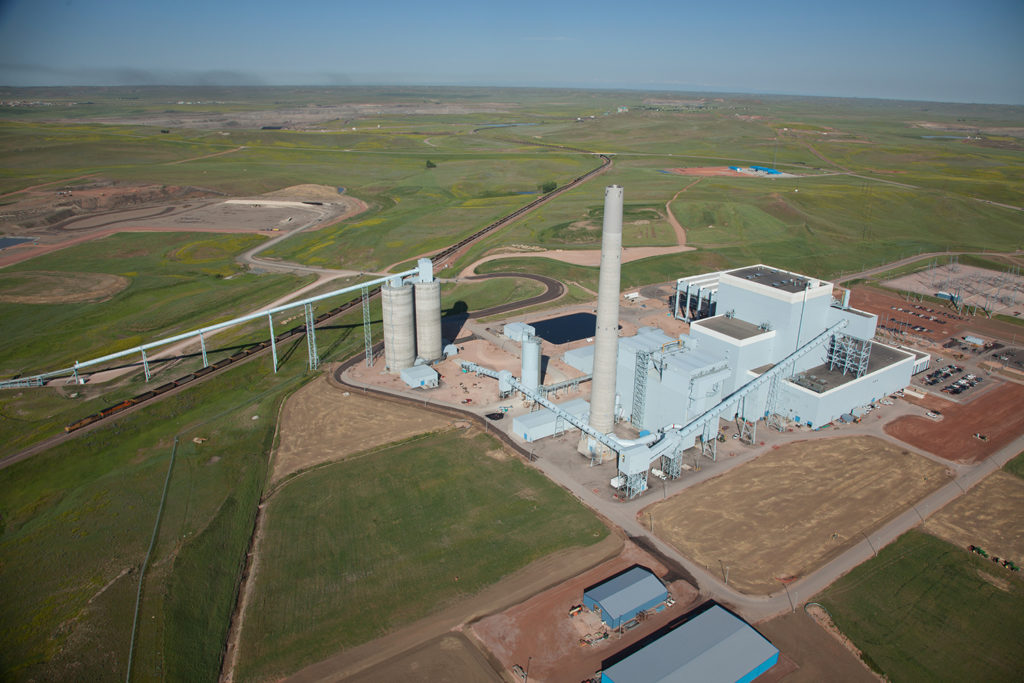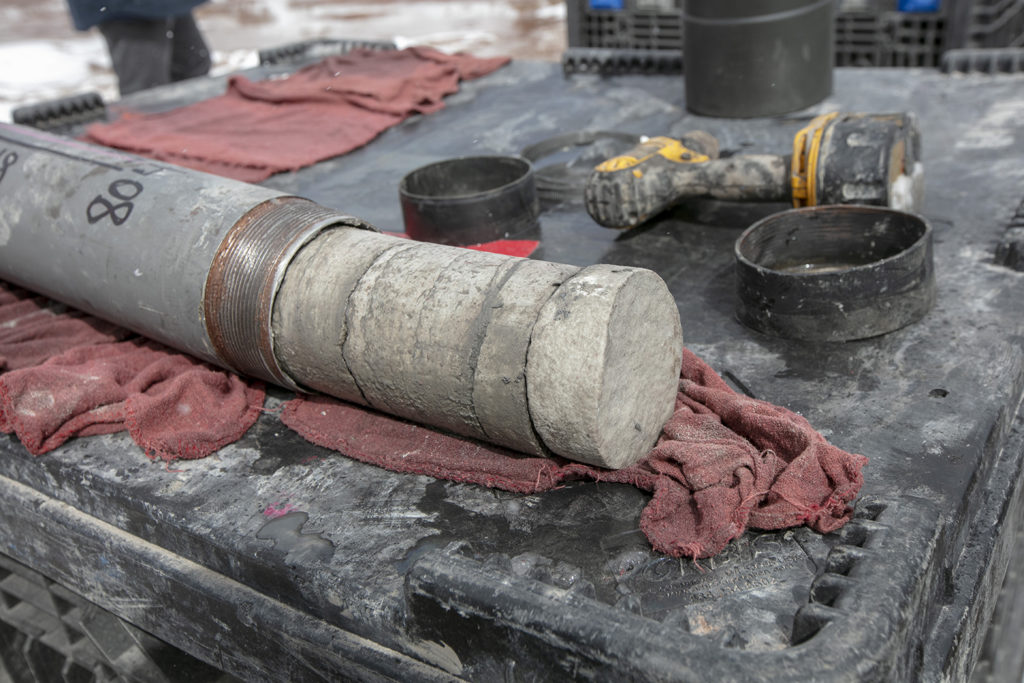
A $15 million federal grant to advance carbon capture and storage technology research will be used for preliminary work on a storage facility near Basin Electric Power Cooperative’s Dry Fork Station in Wyoming.
Basin Electric is hosting the project, which is a joint venture with the University of Wyoming School of Energy Resources (SER).
The U.S. Department of Energy’s National Energy Technology Laboratory grant is a major step toward advancing commercial-scale carbon capture and storage technology. It will help fund a geological storage project located near Basin Electric’s 385-megawatt lignite coal-based plant north of Gillette, Wyoming.
The project could store as much as 50 million tons of CO2 underground.
“We have successfully demonstrated the feasibility of safely, permanently and economically storing CO2 in Wyoming’s Powder River Basin,” said Scott Quillinan, SER’s director of research. “We’re moving forward with final testing to confirm our findings and the pursuit of necessary state and federal permits to move to the final stage.”
Construction and permitting for the project are expected to be completed between 2025 and 2030. Dry Fork Station is a lignite-fueled plant in Wyoming’s Powder River Basin.
The region, which accounts for 40% of the coal used domestically, is also home to CO2 pipelines servicing oil and gas fields, including sites with potential for enhanced oil recovery methods using carbon dioxide.
The three-year, $19.1 million project is in the third phase under the Energy Department’s Carbon Storage Assurance Facility Enterprise (CarbonSAFE) initiative, which seeks to mitigate carbon dioxide emissions from the use of fossil fuels. No CO2 will be injected during this stage.
“CarbonSAFE has exciting potential to find permanent storage for CO2 through this geologic testing,” said Paul Sukut, Basin Electric CEO and general manager, citing the technology’s potential to preserve and enhance coal-fired facilities. “This work is an important step in keeping our baseload (energy) viable in a carbon-constrained environment.”
The grant will support commercial-scale surface and subsurface testing, data assessment and modeling, and documentation work needed to pursue the necessary permits. The work is among the efforts Basin Electric is supporting to help ensure that coal remains a valued energy asset.

“Basin Electric has always been passionate about coal because of its ability to remain reliable whether or not the sun is shining or the wind is blowing,” Sukut said. The regional co-op generates and transmits electricity to 141 member systems in nine states.
Dry Fork Station, commissioned in 2011, is among the most modern coal-based generation facilities in the nation with several decades of remaining use. It is also home to Wyoming’s Integrated Test Center, where academic and commercial research into new uses for carbon dioxide is underway.
The federal government is offering tax credits to support CO2 storage and oil exploration, improving the project’s commercial viability by controlling costs, SER’s Quillinan said.
In addition to the $15.2 million in federal funding, Basin Electric is contributing $1.5 million, and the University of Wyoming is contributing $2.4 million toward the project.
Other partners include: Energy and Environmental Research Center; Advanced Resources International Inc.; Carbon GeoCycle Inc.; Denbury Resources Inc.; Los Alamos National Laboratory; and Schlumberger.
Derrill Holly is a staff writer at NRECA.